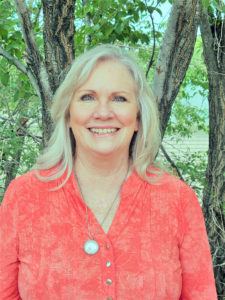Based on what we know at this time, people with HIV may be more likely to get severely ill from COVID-19.
Fast forward to 2019-2020, as the world learned of another new illness, the “novel” coronavirus. The many people who have been or are still affected by HIV surely experienced déjà vu. The same questions came up: What is this new virus? Where did it come from? How do we treat it or, better yet, stop it? More than one-and-a-half years later, we still don’t know much more than we did when COVID-19 appeared on the scene, but because of masking, social distancing and the vaccine, things began to get better.
And just when we thought it was safe to go back in the water…here come the variants. Imagine, if you can, being a person living with HIV and feeling fortunate that you are safely on your medication regimen and living a healthy life – or being someone who loves and cares for someone with HIV, and the very first question is this: How do we handle a pandemic within a pandemic?
Granted, though HIV is still transmittable, because of the 40+ years of science behind how to treat it, it is no longer spreading as fast as COVID-19 and all the variants following closely in tow. However, the questions still begged to be asked: Are people living with HIV at higher risk than those who do not have HIV, and is it safe for them to be vaccinated against COVID?
The CDC has been very good at keeping up with information concerning HIV and COVID and answering the questions regarding these two viruses sharing space in the same communities. Below, please find some of the most common Q & A provided by the CDC and use the link to read more on all things related to HIV and COVID.
Are people with HIV at a higher risk for COVID-19 than other people?
We are still learning about COVID-19 and how it affects people with HIV. Based on what we know at this time, people with HIV may be more likely to get severely ill from COVID-19.
Other factors also can increase the risk for severe illness, such as age and certain underlying medical conditions. Older adults, people with certain medical conditions, and pregnant and recently pregnant people should take preventive actions (including getting vaccinated, wearing a mask and practicing social distancing) to protect themselves from getting COVID-19.
Are COVID-19 vaccines safe for people with HIV?
The U.S. vaccine safety system makes sure all vaccines are as safe as possible. COVID-19 vaccines have gone through the same safety tests and met the Food and Drug Administration’s rigorous scientific standards needed to support emergency use authorization. People with HIV were included in clinical trials. People who have a condition or are taking medications that weaken their immune system may not be fully protected even if they are fully vaccinated.
Can HIV medication (ART) be used to treat COVID-19?
Currently, treatment for COVID-19 is very limited. There is no evidence that any medicines used to treat HIV are effective against COVID-19. People with HIV should not switch their HIV medicine in an attempt to prevent or treat COVID-19.
Some clinical trials are looking at whether HIV medicines can treat COVID-19. Other trials are looking at the effectiveness of different drugs to treat COVID-19 in people with HIV. They are also looking to better understand how people with HIV manage COVID-19. You can learn more at ClinicalTrials.gov.
To learn more, go to: cdc.gov/hiv/basics/covid-19. QCBN
By Vonda Chisholm
Vonda Chisholm is the executive director of Northland Cares, Northern Arizona’s premier specialty HIV treatment and prevention clinic. With offices in Prescott and Cottonwood and remote services, the staff of Northland Cares provides HIV/STI/Hep C education, testing, treatment and prevention as well as wrap-around services such as housing assistance, medical case management, behavioral health treatment and stellar specialty HIV medical services. For questions of any kind, please call 928-776-4612 for those in and near Prescott or 928-649-0833 for those in and near Cottonwood.








